Many of the equipment in the chemical plant belong to special equipment, which is very dangerous. You must know nothing about its testing, operation, and regulatory system!
What is special equipment?
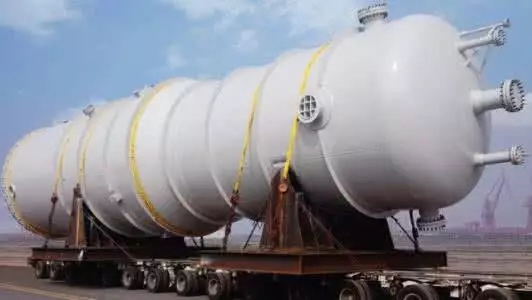
Special equipment is a general term for equipment and facilities that involve life, safety and danger.
Two basic characteristics:
First, it involves life safety.
Two is more dangerous.
Internationally known as:
“ potentially dangerous equipment ”
“ hazardous equipment ”
“ specific hazard equipment ”
Principles included in the scope of state supervision:
First, it causes mass damage
Two is to cause harm to others
Three is to have a greater social impact
In the chemical industry, there are 3 kinds of special equipment that are included in our country's safety supervision:
For pressure equipment such as boilers, pressure vessels, pressure pipes.
Inspection period of special equipment
1. boiler
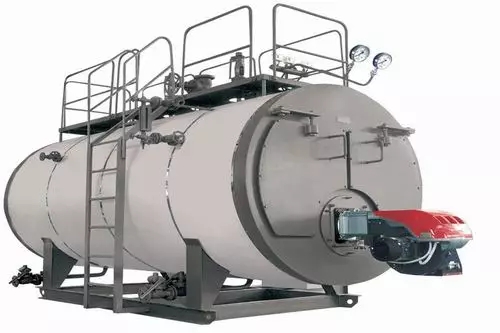
External inspection: yearly inspection.
Internal inspection: inspection every 2 years.
Over hydrostatic test: every 6 years.
2. pressure vessel
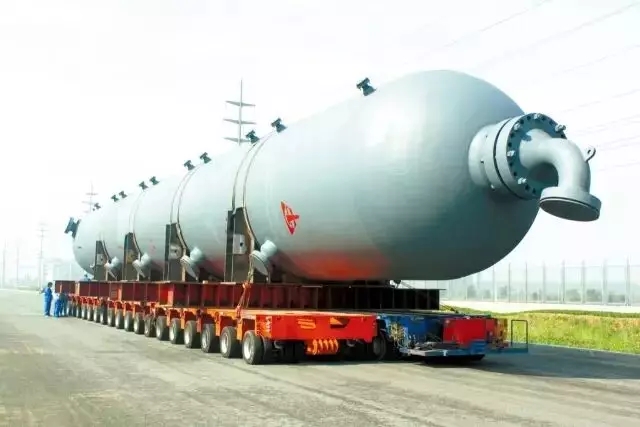
Tank car, railway tank car, tank container.
Annual inspection: at least once a year.
Comprehensive inspection: safety status of grade 1, grade 2, tank car inspection at least once every 5 years, railway tanker test at least once every 4 years, tank container inspection at least once every 5 years; safety grade 3, tank car inspection at least once every 3 years, the railway the tank test at least once every 2 years, tank container test at least once every 2.5 years.
Withstand voltage test: every 6 years.
3. cylinders
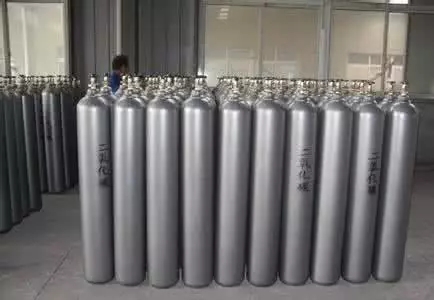
Gas cylinders containing corrosive gases are examined every 2 years.
A gas bottle containing normal gas is examined every 3 years.
Inert gas cylinders are examined every 5 years.
Liquefied petroleum gas cylinders are inspected according to national standards. The cylinder used in YSP - 15, YSP - 10, YSP - 5, YSP - 2, YSP - 0.5, from the date of manufacture, inspection cycle of first to third times for 4 years, fourth times the test cycle is 3 years; the YSP 50 cylinder test once every 3 years.
LPG cylinders are tested every 5 years.
4. pressure piping

4.1 long distance pipeline
Annual inspection: annual inspection shall be carried out at least once a year, and annual inspection is not conducted.
Comprehensive inspection: new pipelines are generally tested for the first time within 3 years after their use.
4.2. public pipe
Annual inspection: annual inspection shall be carried out at least once a year, and annual inspection is not conducted.
Comprehensive inspection: high-pressure gas pipeline GB1 III class comprehensive inspection cycle is generally not more than 8 years, the high pressure gas pipeline, GB1 IV level of medium pressure gas pipeline, GB2 pipeline comprehensive inspection cycle is generally not more than 12 years, the PE pipe or cast iron pipeline materials for comprehensive inspection period of not more than 15 years.
4.3. industrial pipeline
Comprehensive inspection: the safety level is 1 and 2, the inspection period is generally not more than 6 years; the safety level is 3; the inspection period is generally not more than 3 years; the safety condition grade is 4; the punishment should be sentenced to waste.
Comprehensive inspection cycle GC1, GC2 grade pressure pipeline is generally not more than 6 years; in accordance with the risk based inspection (RBI) test results to determine the cycle, generally not more than 9 years; the comprehensive inspection cycle of GC3 level pipeline is generally not more than 9 years.
5. safety valve
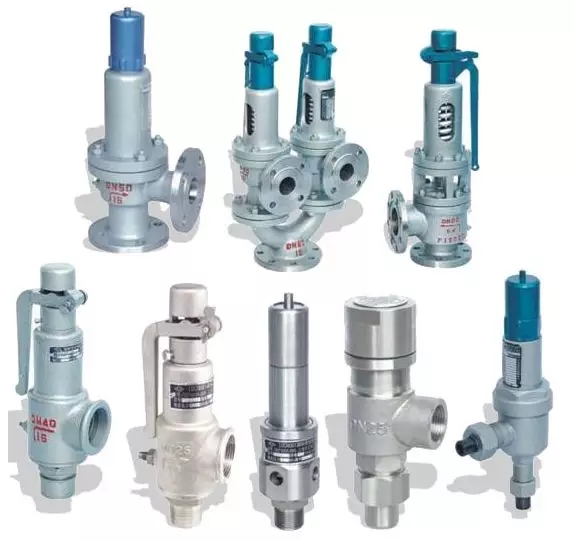
5.1 safety valves for stationary pressure vessels
Safety valves are usually checked at least once a year. For a spring direct cut safety valve, the calibration cycle may be extended for 3 or 5 years after the appropriate conditions have been met.
5.2 safety valves for industrial pipelines
Check at least once a year, special circumstances according to the corresponding technical specifications.
For a spring direct load type safety valve, the calibration cycle may be extended for up to 3 years after the appropriate conditions have been met.
5.3 safety valve for boiler
The boiler safety valve shall be checked at least once a year, and the check of the safety valve shall be carried out in the boiler operation state.
6. pressure gauge
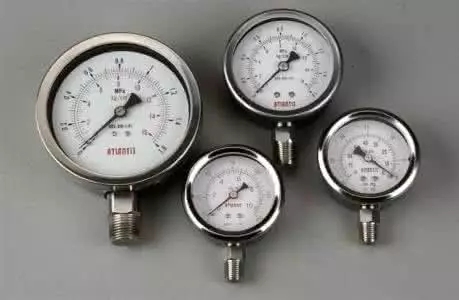
Check at least once a year.
7. bursting discs
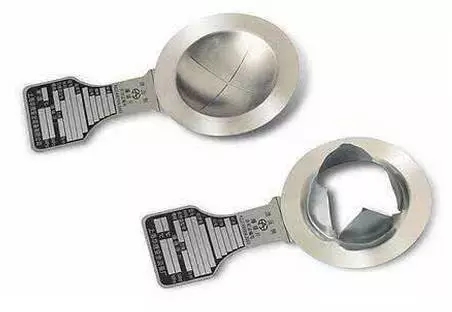
Check at least once a year.
21 questions of special equipment
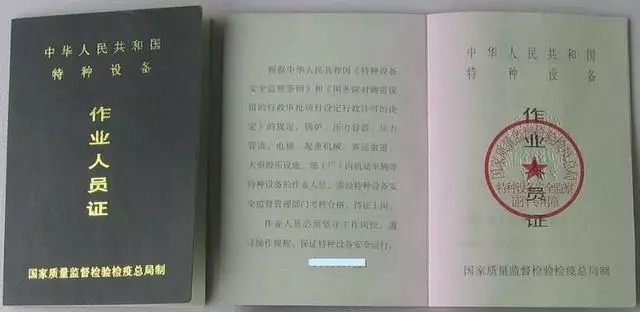
1, whether the operator holds special equipment operation personnel card to mount guard?
Answer: yes.
2, special equipment operator card review once a few years?
Answer: four years.
3 when should the special equipment be registered with the geological supervision department?
Answer: special equipment before use or within 30 days after use.
4, special equipment in the safety test qualified before the expiration of the period of time, should be to the special equipment inspection institutions proposed periodic inspection requirements?
Answer: one month.
5, special equipment does not need to be scrapped or scrapped, what procedures should be taken?
Answer: should apply to the geological supervision department report, stop or cancel.
6, how can the disabled special equipment be re put into use?
Answer: when it is declared by the geological supervision department and has passed the inspection, it may be put into use.
7, the pressure gauge on the dial should be marked red line, indicating what?
Answer: indicate the maximum allowable working pressure.
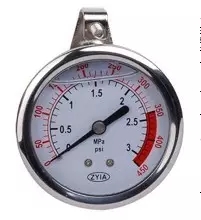
8, how to ensure the water gauge unblocked, to prevent the formation of false water level?
Answer: everyThe class shall flush the water meter at once, and the water level gauge and the steam water cock leakage shall be removed.
9, found in the boiler running water shortage, can emergency water?
Answer: do not add water, should be an emergency shutdown.
10, how to stop an emergency?
Answer: stop fuel supply, stop the air supply, remove or scrape out the fuel in the furnace, and gradually cool the boiler.
11, emergency shutdown, how emergency exhaust?
Answer: turn off the main steam valve, separate the boiler from the main air pipe, and gradually exhaust from the safety valve or emergency exhaust valve to lower the air pressure.
12, how to prevent the safety valve spool rust?
Answer: manual or automatic exhaust test should be done regularly.
13, the regular inspection of pressure vessels are divided into several?
Answer: including comprehensive inspection and pressure test.
14, in case of emergency need to stop running, how to operate?
Answer: first, quickly cut off the power supply, stop the delivery of materials, and then quickly open the outlet valve, vent gas or material, and open the vent valve when necessary.
15. What should be checked before starting the operation?
Answer: check whether the air pump, gas tank, pipe, valve and safety accessories are in good condition.
16, the pressure vessel in the process of the highest working pressure can be higher than the design pressure?
Answer: No.
17, when the container began to pressure, what should pay attention to?
Answer: speed should not be too fast, to prevent pressure suddenly rising.
18 、 under pressure, can I remove the compression bolts?
Answer: No, you must stop the pump, exhaust pressure relief can be carried out.
19, when there is no pressure, where is the indicator of the pressure gauge?
Answer: should be in the limit or nail back to zero value.
20, why security supervision?
Answer: boilers, pressure vessels, pressure pipes are widely used in production and life, with explosive hazards of special equipment.
21, what supervisory systems do we have?
A: the design, manufacture, installation, maintenance and reconstruction of special equipment must be carried out in accordance with the regulations on the supervision of special equipment safety, and may be engaged in relevant business after obtaining the license in accordance with the law.
Within 30 days after the special equipment is put into use or put into use, the employing unit shall register with the safety supervision and administration department. The registration sign shall be placed at the marked position of the device.
The unit for use of special equipment shall, in accordance with the requirements for regular inspection of the safety technical specifications, submit regular inspection requirements to the special equipment inspection and inspection institutions 1 months before the expiration of the validity period of the safety inspection.
Special equipment must be inspected on a regular basis and shall be fined not less than 20 thousand yuan for the use of special equipment without regular inspection or inspection. The use of pressure vessels that have not been inspected regularly or failed to test shall be fined over 20 thousand yuan and under 200 thousand yuan.
Special equipment safety accessories, safety protection devices, measurement and control devices must be inspected regularly according to relevant requirements.
The operators of special equipment shall pass the relevant work or management after they have passed the examination and approval of the special safety supervision and Administration Department of the special equipment and obtained the certificate of the special work personnel.
This article source: chemical 707;

Official public micro signal










